10.09.2010Advocacy training gathered Roma medical students
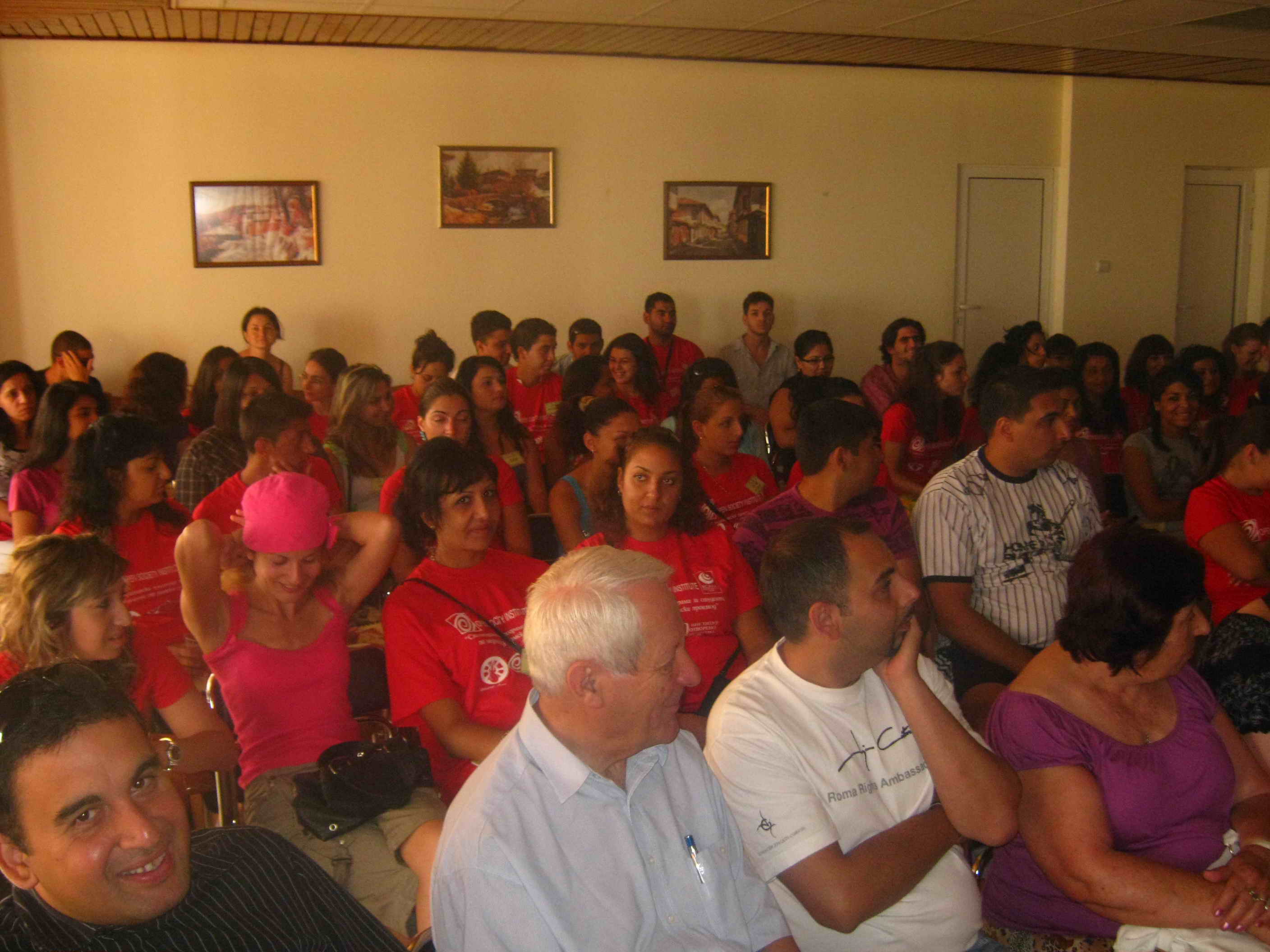 Do you believe in fairy tales? This is not such a strange question. Nowadays we dream very little and we mostly realize plans. But what the plans have to do with our dreams? We will tell you, dear reader!
Do you believe in fairy tales? This is not such a strange question. Nowadays we dream very little and we mostly realize plans. But what the plans have to do with our dreams? We will tell you, dear reader!
So many human lives, desires and hidden impulses were born and grown before our eyes. One year has past since Center Amalipe started the difficult mission to help students involved in the Scholarship Program for Roma medical students to find themselves. We knew it was going to be difficult, but there is no way else. We realized that here in Bulgaria is easier to hide what you really are than to reveal yourself. Whatever we say, we know that behind the word “Roma” lies not just a “gypsy”, but a wave of negativism, negation and many other prejudices, rooted in for centuries. If we must put it in other words by one of our students would look like this “A Roma turns into a gypsy once he leaves the room”. That is what Open Society Institute – Budapest and we have taken into account and what we want to work on.
For the second consecutive year Center Amalipe shows a bold front to the challenge to organize Advocacy 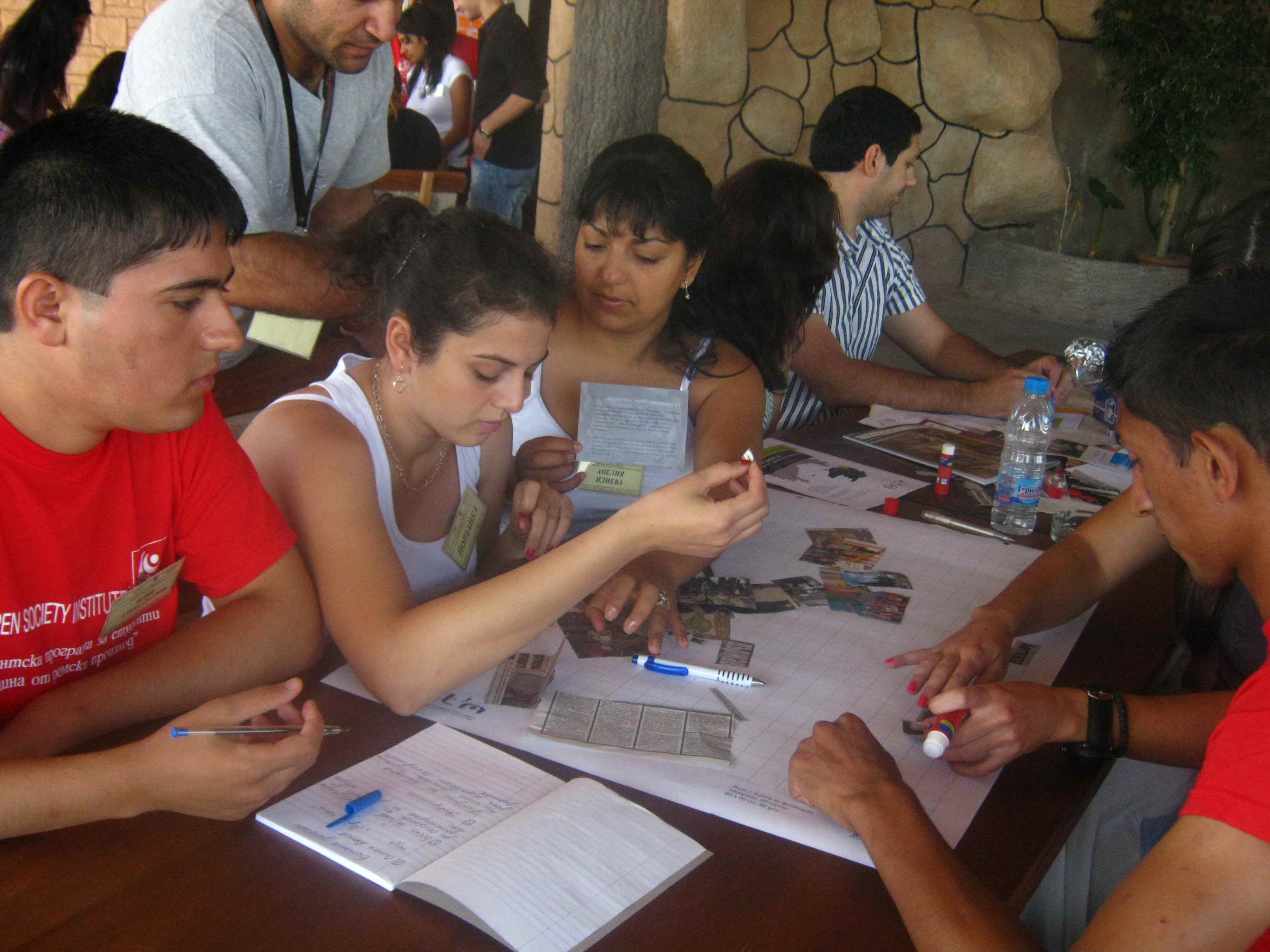 training within the Scholarship Program for medical students of Roma background. And that was not just another Roma training (God gave us plenty of those), but an unforgettable week for every participant. First year students took part in the training as well as students who participate for a second year. The opening ceremony started with speeches by Alina Kovac from Roma Health Program in Open Society Institute – Budapest (OSI), Maria Metodieva – OSI – Sofia, Milen Milanov – National Coordinator of the Decade of Roma Inclusion, Deyan Kolev – Chairman of Center Amalipe and Radostin Manov – Diverse and Equal Association. They are all representatives of the partnering organizations conducting the Scholarship Program.
training within the Scholarship Program for medical students of Roma background. And that was not just another Roma training (God gave us plenty of those), but an unforgettable week for every participant. First year students took part in the training as well as students who participate for a second year. The opening ceremony started with speeches by Alina Kovac from Roma Health Program in Open Society Institute – Budapest (OSI), Maria Metodieva – OSI – Sofia, Milen Milanov – National Coordinator of the Decade of Roma Inclusion, Deyan Kolev – Chairman of Center Amalipe and Radostin Manov – Diverse and Equal Association. They are all representatives of the partnering organizations conducting the Scholarship Program.
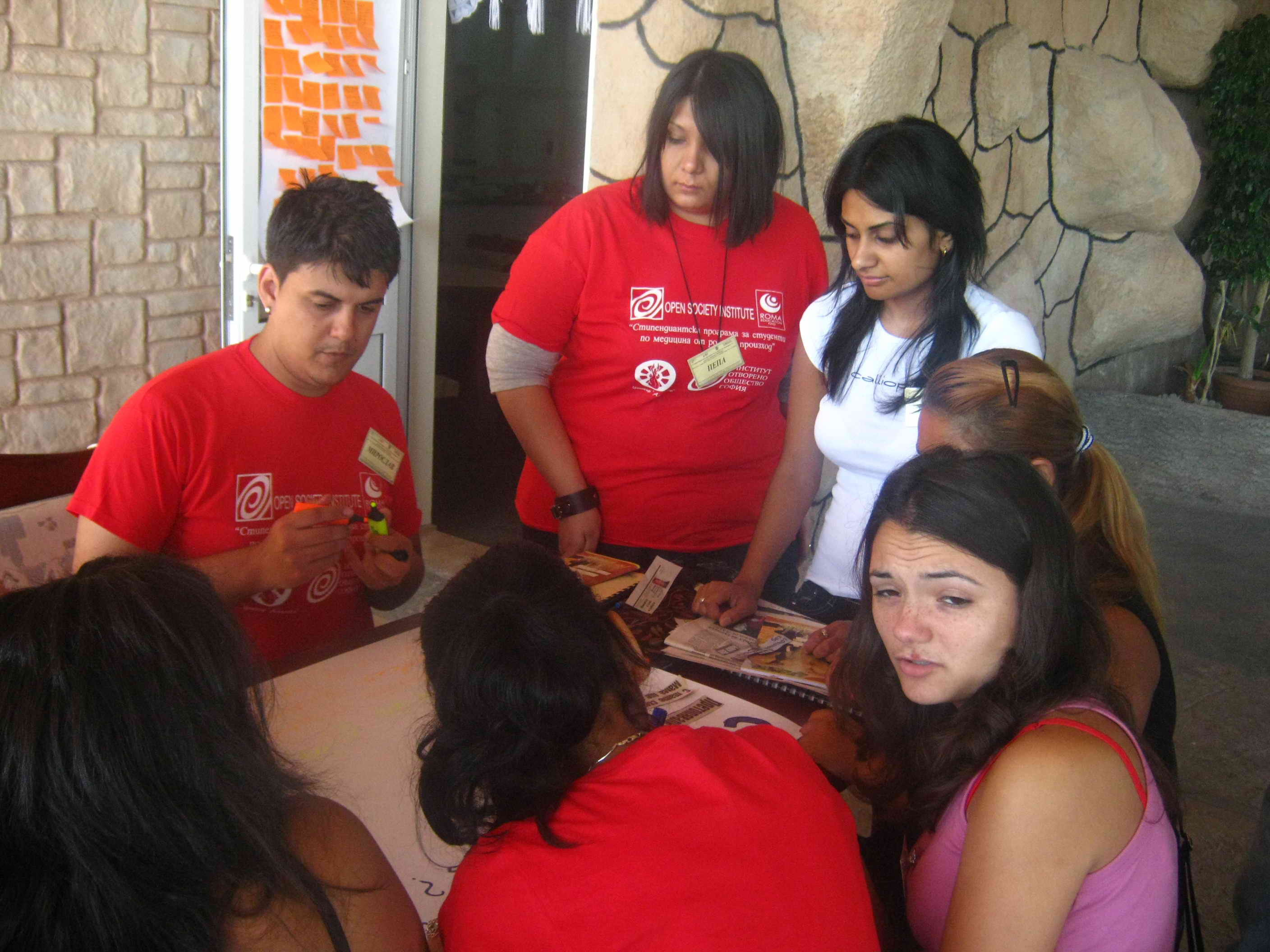 The seminar was organized in two main directions – theoretical and practical. In the outskirts of Veliko Tarnovo, in the last week of August, we gathered nearly 80 students in various medical majors along with their mentors to discuss issues such as the place of Roma in contemporary Bulgarian society, healthcare and new health system reforms with a focus on Roma; “why are we together, and still don’t hear each other?”. Among the main topics in the training were the origin and history of Roma in Bulgaria, the health reform in Bulgaria and its impact on Roma, the family trace that defines the ethnic identity. Conflicts – negotiations and mediation and Advocacy which is an important mechanism to change existing policies and practices in the society were other topics in the program.
The seminar was organized in two main directions – theoretical and practical. In the outskirts of Veliko Tarnovo, in the last week of August, we gathered nearly 80 students in various medical majors along with their mentors to discuss issues such as the place of Roma in contemporary Bulgarian society, healthcare and new health system reforms with a focus on Roma; “why are we together, and still don’t hear each other?”. Among the main topics in the training were the origin and history of Roma in Bulgaria, the health reform in Bulgaria and its impact on Roma, the family trace that defines the ethnic identity. Conflicts – negotiations and mediation and Advocacy which is an important mechanism to change existing policies and practices in the society were other topics in the program.
In the beginning it was natural for those who didn’t know us to be distant. They needed time to get to know their peers and potential colleagues as well as the conductors of the training. They also needed time to understand why the Program should be given such publicity when their colleagues would point them and gossip – “There she is! She’s a gypsy, didn’t you know that?”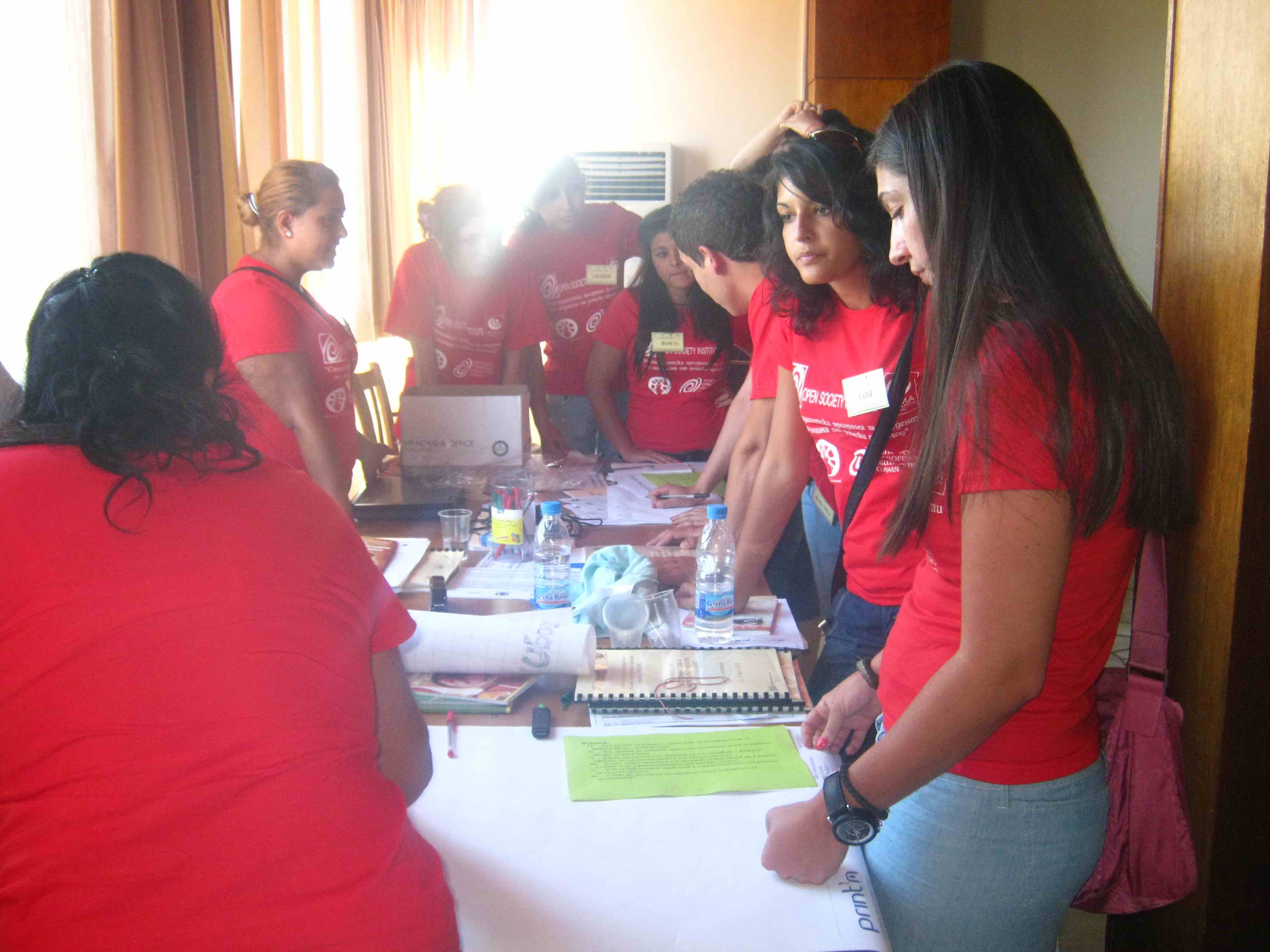
The first day gathered all together and distrust was tangible even during the teambuilding games. The students were surprised how rich and varied the theoretical and practical activities in the program were. And if the first day most students were not enthusiastic about spending a whole week of their summer vacation in a training camp instead of being in a coastal resorts, in the next few days the organizers proved them wrong and showed them that they won’t regret their participation, on the contrary – in the end of the period most of them would want the training to continue for another week.
In the first days organizers and speakers had the difficult task to awaken the desire and motivation for work in the young people and to rally the team of 70 students. Before the training some of the students shared that they had different plans for the summer and they would come but not with particular desire. Some openly said they have participated in a number of seminars and trainings, so they did not expect anything new.
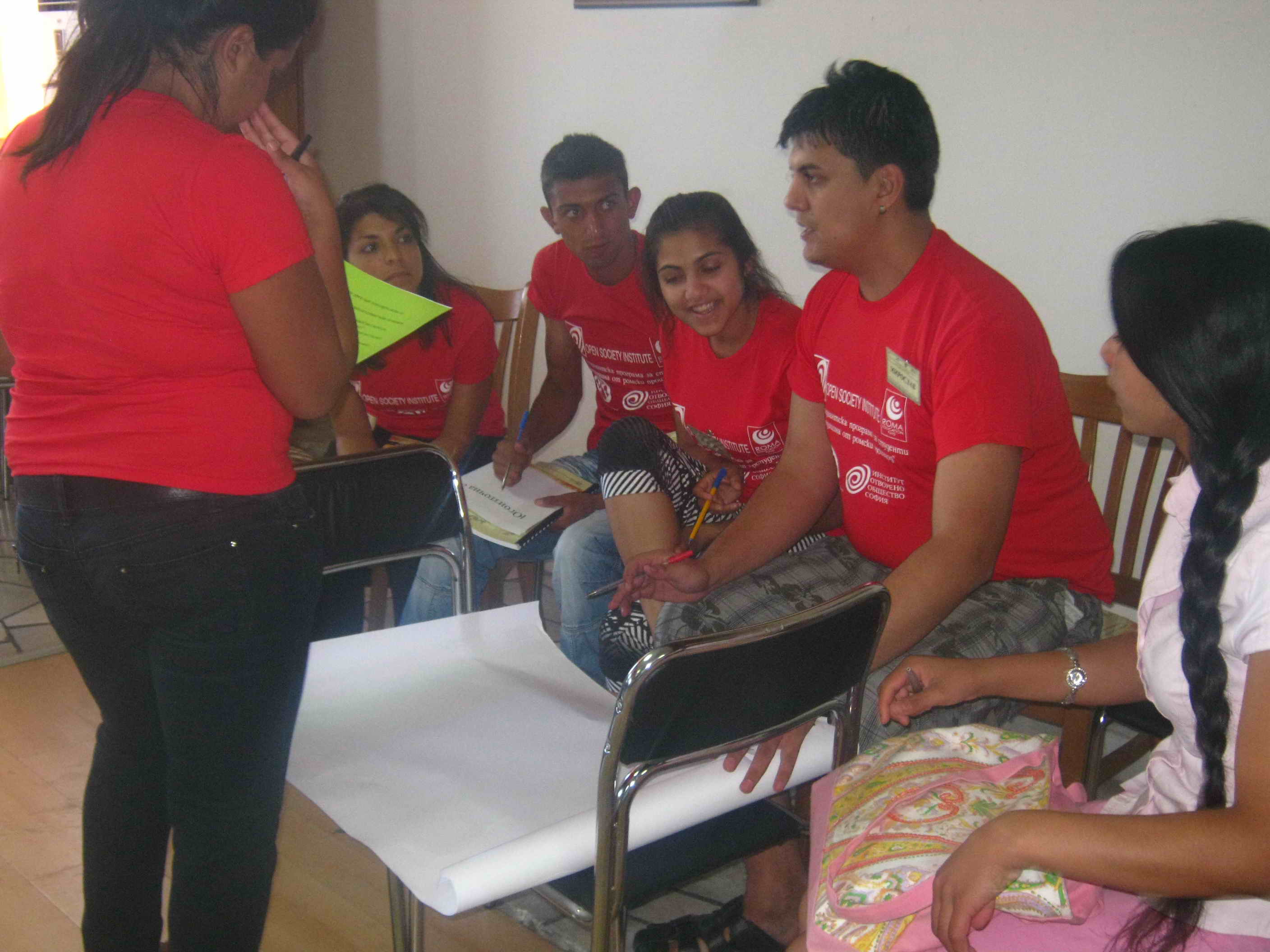 This attitude of theirs put even greater challenge for the team. Soon the students themselves were aware that this is not the standard seminar they expected. From the outset the young people jumped into interesting topics such as history, origin and traditions of the Bulgarian Roma, which topics were presented in a highly interactive way by Deyan Kolev and Theodora Krumova. While working young people were able to exchange information on how to celebrate Roma traditions in different areas of the country and they all learned many new things and bits of culture that have survived throughout the time and especially how group and ethnic specifics reflect on health problems, and the ways to approach each Roma group. The method of presenting the traditions that the organizers chose was the most suitable possible – divided into groups the students had to play roles of different traditional celebrations such as “Vasiliovden”, St.George’s Day, wedding ceremony and others. Besides the educational component of the exercise the students enjoyed the vivid roles they had to play. They showed amazing imagination not only in the performance but also in furnishing requisite from the hotel facilities. Other topics that were involved in the program had to bring the future medical wor
This attitude of theirs put even greater challenge for the team. Soon the students themselves were aware that this is not the standard seminar they expected. From the outset the young people jumped into interesting topics such as history, origin and traditions of the Bulgarian Roma, which topics were presented in a highly interactive way by Deyan Kolev and Theodora Krumova. While working young people were able to exchange information on how to celebrate Roma traditions in different areas of the country and they all learned many new things and bits of culture that have survived throughout the time and especially how group and ethnic specifics reflect on health problems, and the ways to approach each Roma group. The method of presenting the traditions that the organizers chose was the most suitable possible – divided into groups the students had to play roles of different traditional celebrations such as “Vasiliovden”, St.George’s Day, wedding ceremony and others. Besides the educational component of the exercise the students enjoyed the vivid roles they had to play. They showed amazing imagination not only in the performance but also in furnishing requisite from the hotel facilities. Other topics that were involved in the program had to bring the future medical wor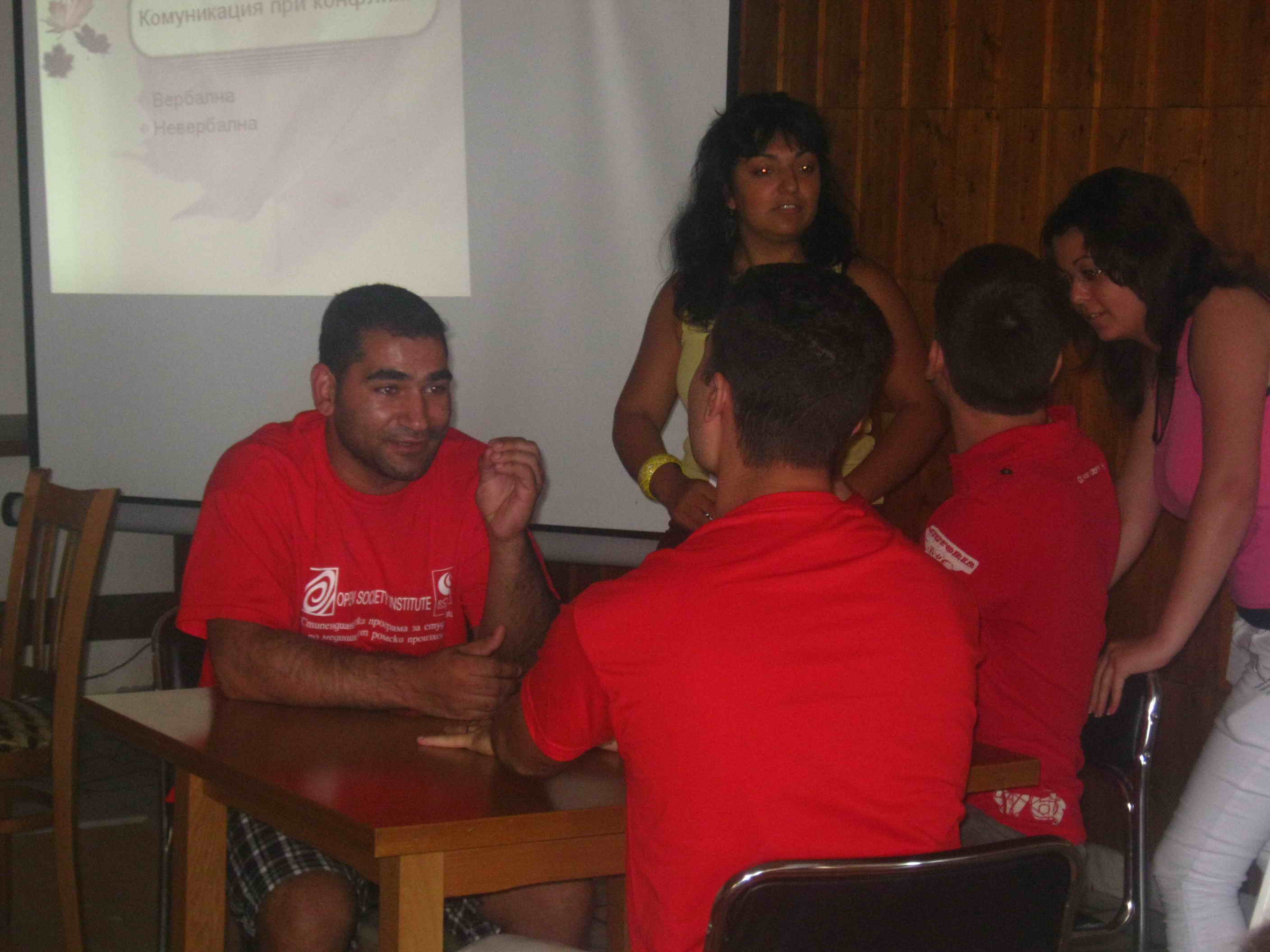 kers into more specialized topics such as health problems of minorities in Bulgaria with a focus on the healthcare of Roma. Wherein the students shared knowledge of the most common diseases that are met among the Roma and discussed the reasons for that with their mentors. Prof. Tarnev who is one of the mentors entered deep into the subject of genetically predisposed diseases that are sometimes a result of marriages in closed communities. In addition the professor and the students discussed the mechanisms for screening and treatment of socially significant diseases affecting certain groups of low social status.
kers into more specialized topics such as health problems of minorities in Bulgaria with a focus on the healthcare of Roma. Wherein the students shared knowledge of the most common diseases that are met among the Roma and discussed the reasons for that with their mentors. Prof. Tarnev who is one of the mentors entered deep into the subject of genetically predisposed diseases that are sometimes a result of marriages in closed communities. In addition the professor and the students discussed the mechanisms for screening and treatment of socially significant diseases affecting certain groups of low social status.
In the process of advocacy training themes of mediation, negotiation and conflict management were inevitably 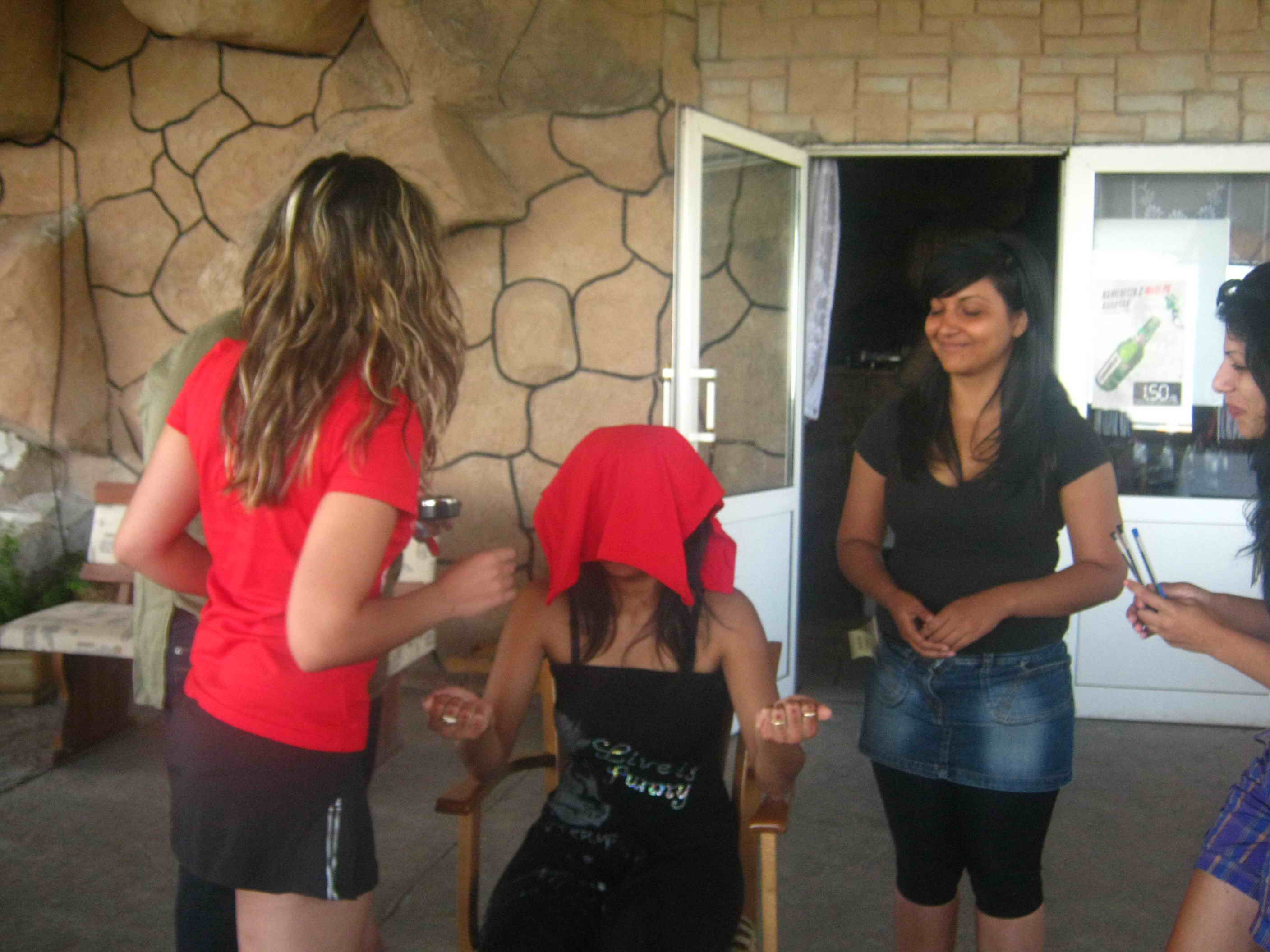 implemented. Prof. Tatiana Dronzina profoundly shook the merits of the young people with her positivism and knowledge in the field of conflict resolution. She made them understand the depth of a problem and develop mechanisms for solving complex life issues. The reaction of the students showed that they understand that issues are never straightforward, on the contrary, they always have two or more parties – one for each of the viewpoints. The young people had to work in groups on a complex case in which the life of children suffering cancer was under threat. The other viewpoint was of a production company which had the power to help the children. At first it seemed like each one of the viewpoints was right, but speaking in detail the students had to strike a balance between the interests and to compromise. Representatives of each group showed impressive oratorical skills and especially skills to defend a thesis involving arguments. At times the dispute between the parties even caused fierce debate, but the results showed the ability of the young people to pursue their objectives and to compromise in the same time.
implemented. Prof. Tatiana Dronzina profoundly shook the merits of the young people with her positivism and knowledge in the field of conflict resolution. She made them understand the depth of a problem and develop mechanisms for solving complex life issues. The reaction of the students showed that they understand that issues are never straightforward, on the contrary, they always have two or more parties – one for each of the viewpoints. The young people had to work in groups on a complex case in which the life of children suffering cancer was under threat. The other viewpoint was of a production company which had the power to help the children. At first it seemed like each one of the viewpoints was right, but speaking in detail the students had to strike a balance between the interests and to compromise. Representatives of each group showed impressive oratorical skills and especially skills to defend a thesis involving arguments. At times the dispute between the parties even caused fierce debate, but the results showed the ability of the young people to pursue their objectives and to compromise in the same time.
In the coming days the students worked on topics related to cooperation with media. Juliana Toncheva presented how most effectively to communicate with the media and how to make them an ally.
In the end of the training all students headed to the cities of Sliven and Stara Zagora where they visited Roma neighborhoods and settlements.
During the fieldwork in “Nadejda” neighborhood in Sliven and “Lozenets” in Stara Zagora the students had the 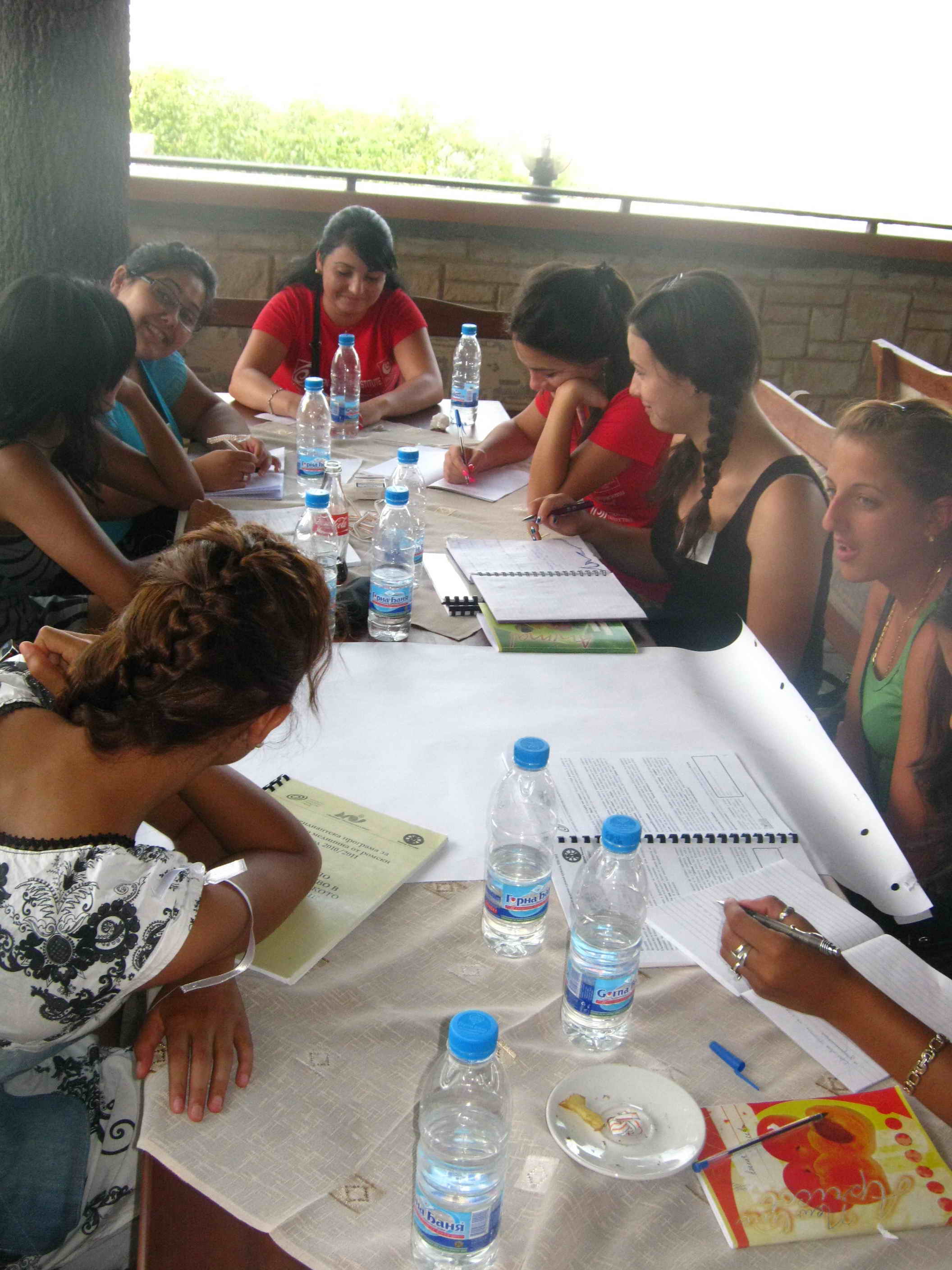 opportunity to apply what they learned during the training and especially to see how socially excluded Roma communities live in extreme poverty. After an extensive tour in the 18-thousand-inhibitants-neighborhood the students were shocked by the scene they found and the fact that there is no “hope” in “Nadejda” (editor’s note: in Bulgarian “nadejda” means hope). The students said that there is a great necessity of operational national strategy and policy for the socially excluded strongly marginalized groups. Another fact that the future health workers reported is the very high risk of outbreaks of epidemics, firs because of the miserable conditions people live in and second, because of densely populated small residential buildings. As a reason of the disadvantageous situation of certain Roma groups, the students point their low social status in general and the lack of health insurance which is the social status’ result. The students themselves could not believe that human beings can live in such extremely miserable conditions in the 21st century. In their emotional reactions the young people asked where is the common policy aimed at vulnerable groups and they felt powerless to change the existing situation. Some of them, however, even the sight of despair, pain and misery believe change can happen only with joint efforts of the whole society, because this is a bilateral process. Inclusion of Roma children in the educational system is one of the steps to be taken as well as improving the health status of Roma is another action to be taken, in student’s opinion, with no more delays! In the end of the training course the students are clear about one thing – they are the bearers
opportunity to apply what they learned during the training and especially to see how socially excluded Roma communities live in extreme poverty. After an extensive tour in the 18-thousand-inhibitants-neighborhood the students were shocked by the scene they found and the fact that there is no “hope” in “Nadejda” (editor’s note: in Bulgarian “nadejda” means hope). The students said that there is a great necessity of operational national strategy and policy for the socially excluded strongly marginalized groups. Another fact that the future health workers reported is the very high risk of outbreaks of epidemics, firs because of the miserable conditions people live in and second, because of densely populated small residential buildings. As a reason of the disadvantageous situation of certain Roma groups, the students point their low social status in general and the lack of health insurance which is the social status’ result. The students themselves could not believe that human beings can live in such extremely miserable conditions in the 21st century. In their emotional reactions the young people asked where is the common policy aimed at vulnerable groups and they felt powerless to change the existing situation. Some of them, however, even the sight of despair, pain and misery believe change can happen only with joint efforts of the whole society, because this is a bilateral process. Inclusion of Roma children in the educational system is one of the steps to be taken as well as improving the health status of Roma is another action to be taken, in student’s opinion, with no more delays! In the end of the training course the students are clear about one thing – they are the bearers 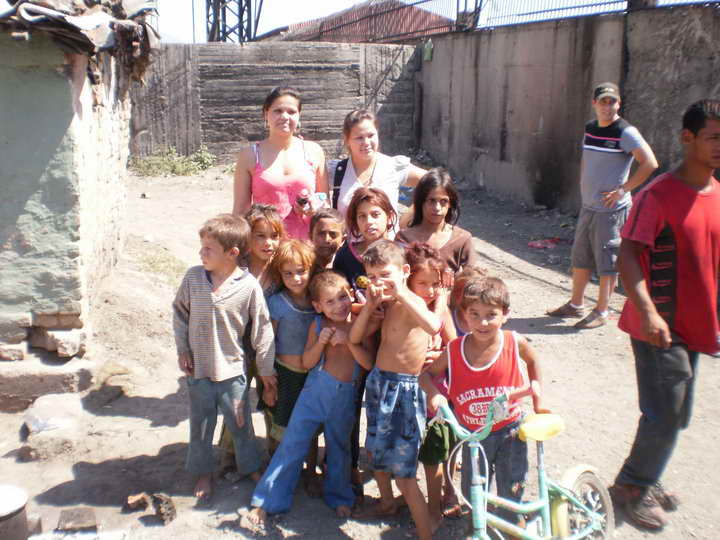 of the change. “When I came to the training I didn’t know why I’m here… I knew we are expected to help, but I didn’t know how. Since I’m here I learned so much about our culture! Now I know how can I help for the change.” – said Hristina from Sofia. “Here I found so many new things – says Anelia – many friends who give me confidence that I’m not alone in this mission that I bear. I also find support in the difficulties that I will encounter and especially knowledge which makes me proud with my origin”.
of the change. “When I came to the training I didn’t know why I’m here… I knew we are expected to help, but I didn’t know how. Since I’m here I learned so much about our culture! Now I know how can I help for the change.” – said Hristina from Sofia. “Here I found so many new things – says Anelia – many friends who give me confidence that I’m not alone in this mission that I bear. I also find support in the difficulties that I will encounter and especially knowledge which makes me proud with my origin”. 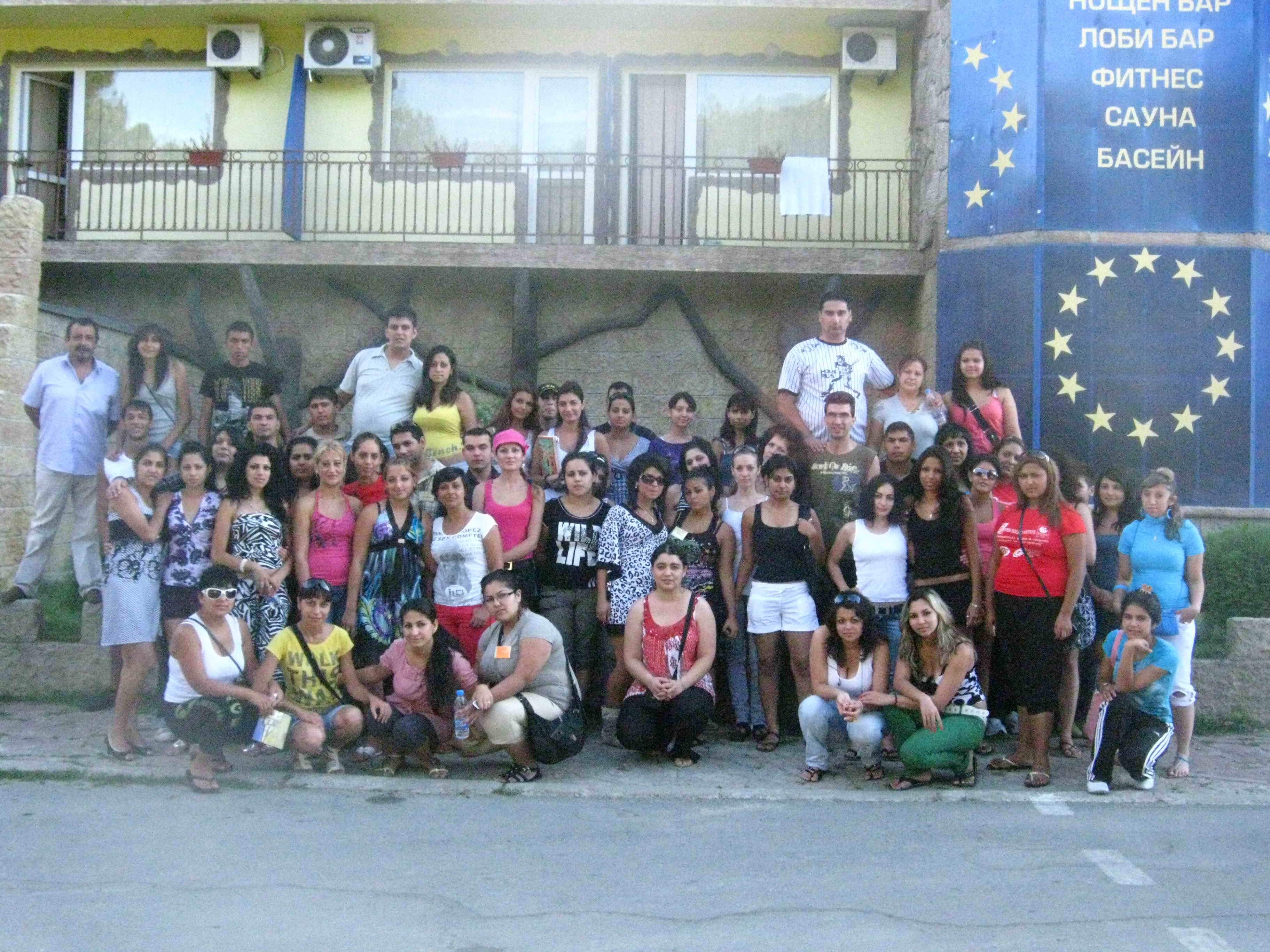 “Honestly I never wanted to participate in the training and I don’t want my colleagues to know that I’m Roma. Now I don’t want the training to end, I want it to continue for another week, because here I found myself. Now I know that I can change my colleagues’, my friends’ and my teachers’ opinion about Roma. Now I know that I have a good reason to be proud and I want more people to know it!
“Honestly I never wanted to participate in the training and I don’t want my colleagues to know that I’m Roma. Now I don’t want the training to end, I want it to continue for another week, because here I found myself. Now I know that I can change my colleagues’, my friends’ and my teachers’ opinion about Roma. Now I know that I have a good reason to be proud and I want more people to know it!








